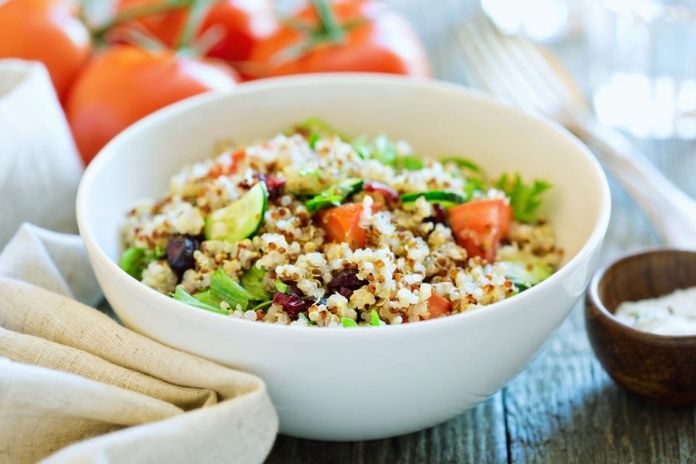When it comes to muscle building and physical fitness, animal foods are known to be safe sources of protein that our body can use ideally. However, too much of it can have adverse health effects. What few people know: some plant-based foods can easily compete with them in terms of protein content and essential amino acids.
Plant-based foods with high protein content are valuable for us (besides muscle building): They are rich in secondary plant substances and fiber, which keep you full for a long time. Below we present six plant-based foods that provide high-quality protein that the body can easily convert into endogenous protein, which is why they belong on every menu.
Spirulina
There are around 11 grams of protein in an egg – almost five times as much in 100 grams of spirulina! More precisely, the plant, a blue-green alga, grows mainly in Mexico and parts of Africa in mineral-rich lakes. With its protein content of a robust 57 percent, spirulina has so much nutritional value that it has long been cultivated and traded as a superfood. Indigenous people appreciate their detoxifying, strengthening, and anti-inflammatory properties.
The alga is not a food in the conventional sense but rather to be understood as a dietary supplement. Also, not everyone likes their fishy taste. However, if that doesn’t bother you, adding a tablespoon of spirulina powder to your smoothie will add a whopping eight grams to your protein balance. Necessary: When buying, please always make sure that the product comes from a certified and sustainably producing breeding facility. Spirulina algae are also available as tablets or capsules.
Wheat Germ
Wheat germ contains around 28 grams of protein per 100 grams and over 70 essential nutrients and fiber. They are the perfect addition to muesli, yogurt, or smoothies and taste wonderfully nutty. Necessary for pregnant women – and also for those who want to become one: Wheat germ contains many folic acids. The vitamin can increase fertility and is essential for the baby’s development in the womb. Vitamin E, which is also included in abundance, ensures beautiful skin and prevents dementia. Caution: Never boil or heat wheat germ; otherwise, their valuable properties will be destroyed.
Hemp Seeds
Fitness freaks have long discovered hemp protein as an ideal muscle booster. Ingeniously, besides all the amino acids that the body needs but cannot produce, they also contain lots of branched-chain amino acids (better known as BCAAs). These are particularly important for muscle building and muscle repair. With around 24 grams of protein, 100 grams of hemp seed contains as much as the same amount of beef. The mixing ratio of their ingredients is so perfectly matched that the organism can absorb and utilize almost everything. In addition, tiny seeds are considered to increase potency and promote fertility.
Lenses
In the Middle Ages, lentils were considered poor people’s food; they were almost forgotten. Today they are experiencing a comeback, and rightly so. With 23 grams of protein per 100 grams, they are an ingenious protein filling station that fills you up for a long time (like all legumes) but has the advantage over peas or beans in that they are easier to digest. The biological value of the lens protein is also comparatively high. Also noteworthy is the high proportion of zinc, which keeps the metabolism going. Incidentally, connoisseurs swear by red lentils and attest to their usual aromatic-nutty taste, which is said to be a bit sweeter than white or brown lentils.
Pumpkin Seeds
Nuts and seeds are healthy sources of energy but contain a lot of fat. With 19 grams per 100 grams, pumpkin seeds are still comparatively lean (for comparison: Brazil nuts contain 66 grams!). On the other hand, their protein content is relatively high (19 grams per 100 grams) – which is why they should not be missing from this list. All eight essential amino acids are also represented here, making the pumpkin seed protein so valuable. The high proportion of lysine, the building block that ensures solid connective tissue and healthy bones, is outstanding. Vegetable proteins are usually not as rich in lysine. Vegans should therefore nibble pumpkin seeds regularly.
Quinoa
Some experts claim that quinoa is the best source of plant-based protein globally. The fact is: the gluten-free pseudo cereal contains all eight essential amino acids, which is unusual for a plant. The tryptophan content, which stimulates the production of the happiness messenger serotonin in the brain, is exceptionally high. Quinoa can therefore also be described as a “happy maker.” There are a whopping 13 grams of protein in 100 grams, putting it far in the shade of oats or amaranth.
Also Read: Nutrition: These 7 Fermented Foods Keep The Intestines Fit

